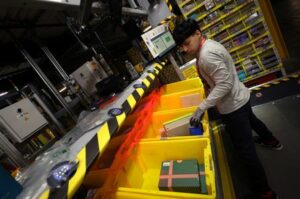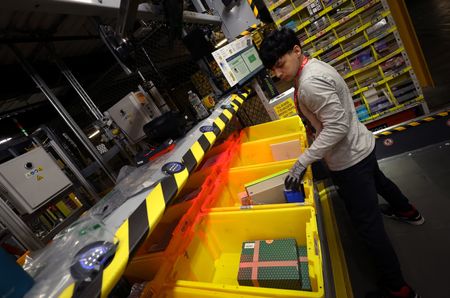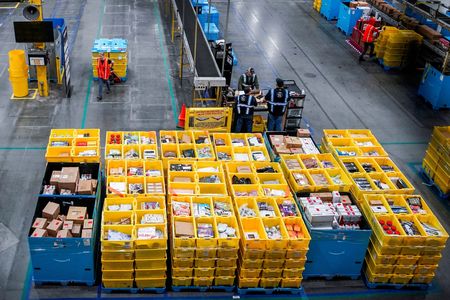By Arriana McLymore and Deborah Mary Sophia
NEW YORK (Reuters) -A record amount of price-pinched holiday shoppers are expected to use buy now, pay later services for Cyber Monday to relieve stress on their wallets, according to Adobe Analytics.
Shoppers are slated to spend between $12 billion and $12.4 billion online on Monday, with $782 million of purchases made with BNPL services, including Klarna and Affirm, representing a surge of nearly 19% from last year, the data company said.
Affirm shares gained nearly 12% on Monday after Adobe Analytics released the upbeat data. That stock has more than tripled in 2023, boosting its market value to more than $8 billion on the growing popularity of BNPL services. Rival Upstart Holdings rose 2.6% on Monday; its shares have gained nearly 90% so far this year.
BNPL has consistently been growing in popularity over the past several years, but its usage is getting a further boost from budget-conscious shoppers trying to avoid the additional fees and interest that come with purchases made through credit cards.
“The scale of the adoption (of BNPL) has just gotten so big. It’s become really, really, really popular,” said Dan Dolev, an analyst at Mizuho Securities.
Economists anticipated the holiday season would be slower than recent years due to financial pressure on consumers who are dealing with higher interest rates and lingering inflation. However, early indications from Monday’s shopping suggests consumer spending looks to have remained steady even as consumer finances have deteriorated from post-pandemic strength.
A survey by Klarna found nearly half of those surveyed worried that they would not be able to pay off credit card bills in full from holiday spending.
The buy now, pay later firm saw a 29% increase in orders placed by U.S. shoppers on Black Friday, with some of the most popular items being personal electronics, televisions and kitchen appliances.
Average basket sizes on Black Friday orders declined 32% compared to last year, according to a report from Quantum Metric, a sign that shoppers aren’t making as big of purchases this year.
(Reporting by Arriana McLymore in New York City and Deborah Sophia in Bengaluru; Additional reporting by Juveria Tabassum; Editing by Aurora Ellis)






